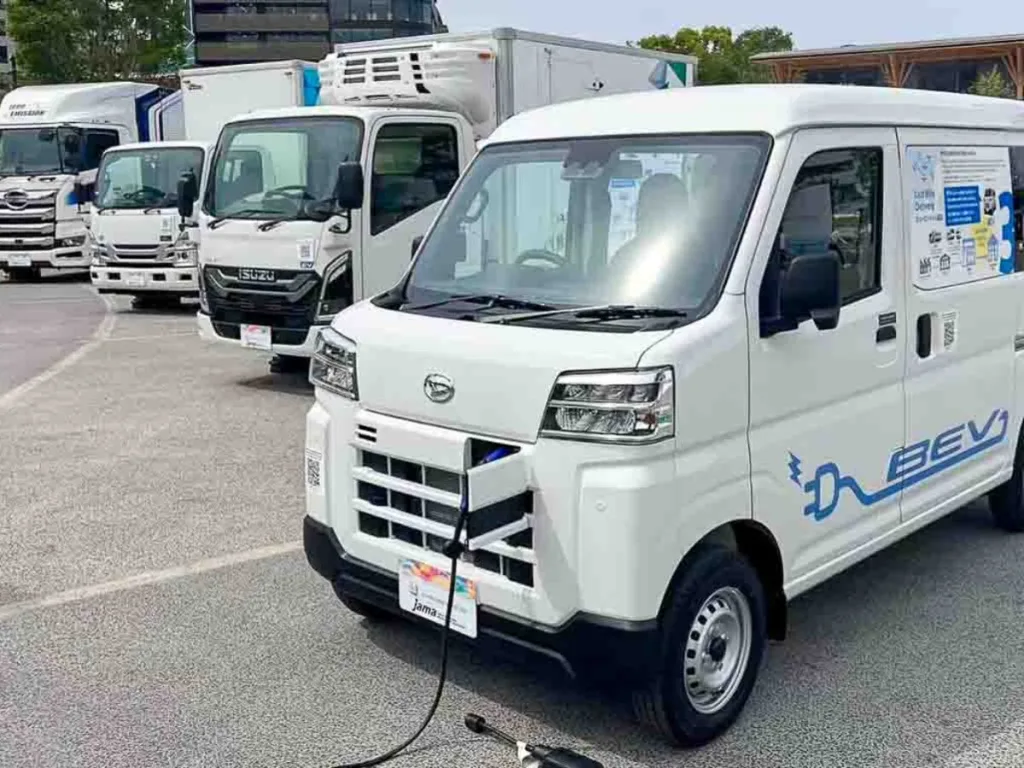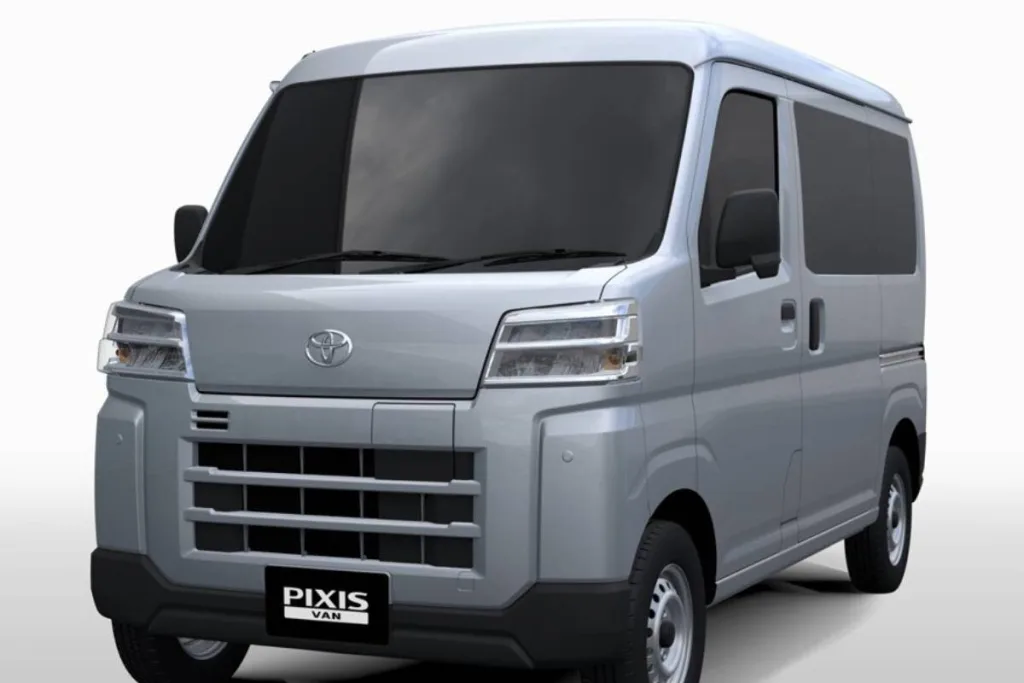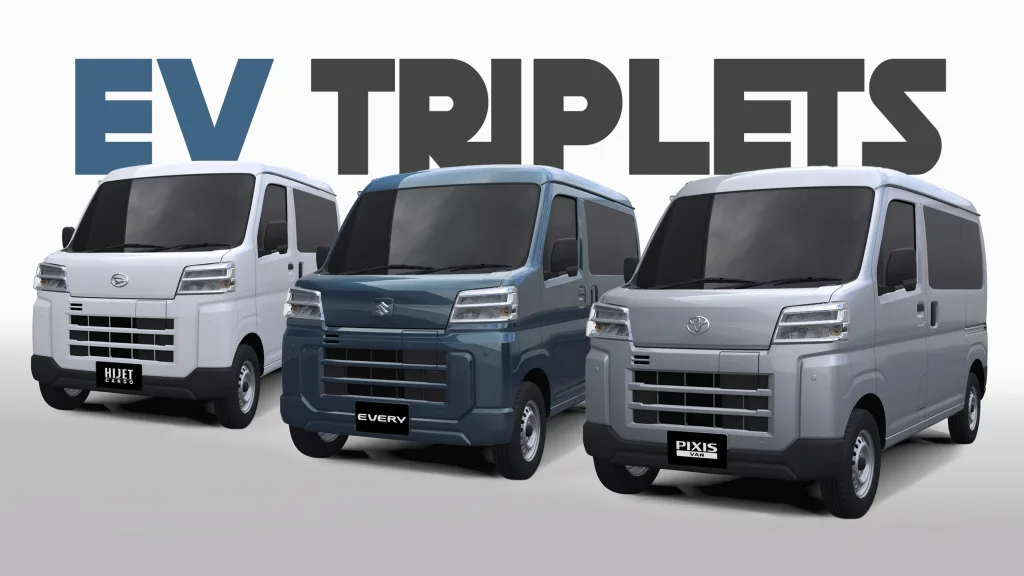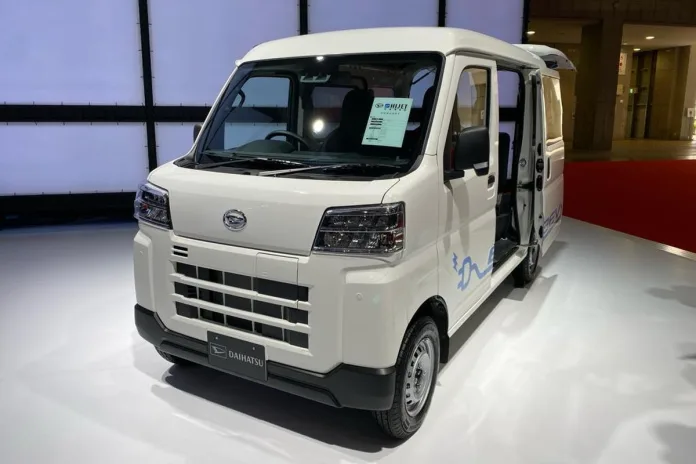Suzuki and Toyota are joining forces to develop a groundbreaking electric commercial vehicle, expanding the Suzuki EV lineup with the e-Every electric van in 2025. This three-way partnership, which also includes Daihatsu, leverages each company’s strengths to create an electric kei van designed to revolutionize urban deliveries for small businesses.
Table of Contents
Electric Van Specifications and Features

The e-Every electric van will be built on the Daihatsu New Global Architecture (DNGA) platform. With compact dimensions of 3,395 mm length, 1,475 mm width, and 1,815 mm height, this electric van is perfectly sized for congested urban environments.
What sets this vehicle apart is its practical range of approximately 200 km on a single charge, making it ideal for daily delivery routes without causing range anxiety. Industry experts anticipate the e-Every will deliver around 64 PS of power output, with the benefits of instant torque, lower operating costs, and zero emissions that come with electric propulsion.
In this strategic collaboration:
- Suzuki contributes its small vehicle design expertise
- Toyota provides advanced electrification technology
- Daihatsu leads the manufacturing process
The e-Every is scheduled to debut at an upcoming Japan Automobile Manufacturers Association exhibition, with market availability in 2025. This timeline aligns with Toyota’s broader electrification roadmap and ambitious targets for battery electric vehicle sales.
Commercial EV Market Impact
This suzuki ev represents a significant milestone in the company’s electrification strategy and could reshape the commercial EV landscape, particularly in Asia and emerging markets where small, efficient delivery vehicles are in high demand.
When compared to other commercial electric vehicles, the e-Every stands out for its compact dimensions and urban utility:
| Vehicle | Length | Range | Target Market |
|---|---|---|---|
| e-Every | 3,395 mm | ~200 km | Urban delivery, small business |
| Ford E-Transit | 5,981-6,704 mm | 203-317 km | Medium-large business, fleet |
| Volkswagen ID.Buzz Cargo | 4,712 mm | ~400 km | Premium delivery, passenger transport |
Toyota Kei Van Strategy
The toyota kei van segment will see a new electric entrant with the rebadged version of the e-Every, likely marketed under Toyota’s Pixis brand. This multi-brand approach maximizes market penetration and leverages existing dealer networks.

The platform will support three distinct models:
- Suzuki Every
- Toyota Pixis Van
- Daihatsu Hijet Cargo
Each variant will maintain brand-specific styling while sharing the core electric architecture, creating economies of scale that make the vehicles more affordable.
Benefits for Small Business Owners
For small businesses, the e-Every offers several advantages:
- Reduced operating and maintenance costs
- Access to low or zero-emission zones in urban centers
- Enhanced brand image through environmental commitment
- Protection against rising fuel costs and tightening regulations
- Practical daily range for most urban delivery operations
“The e-Every could be a game-changer for small businesses looking to electrify their fleets,” notes small business consultant Takeshi Nakamura. “Its compact size and practical range make it an ideal first step into commercial EVs without requiring significant operational changes.”

The Future of Japanese Automotive Collaboration
The development of this electric kei van highlights a growing trend of collaboration among Japanese automakers facing electrification challenges. Toyota’s investment of 4 trillion yen (approximately £24 billion) in EV development underscores the scale of financial commitment required, which is being distributed through strategic partnerships.
The suzuki ev partnership with Toyota demonstrates the collaborative approach Japanese automakers are taking toward electrification, potentially setting a precedent for future joint ventures in the industry.


